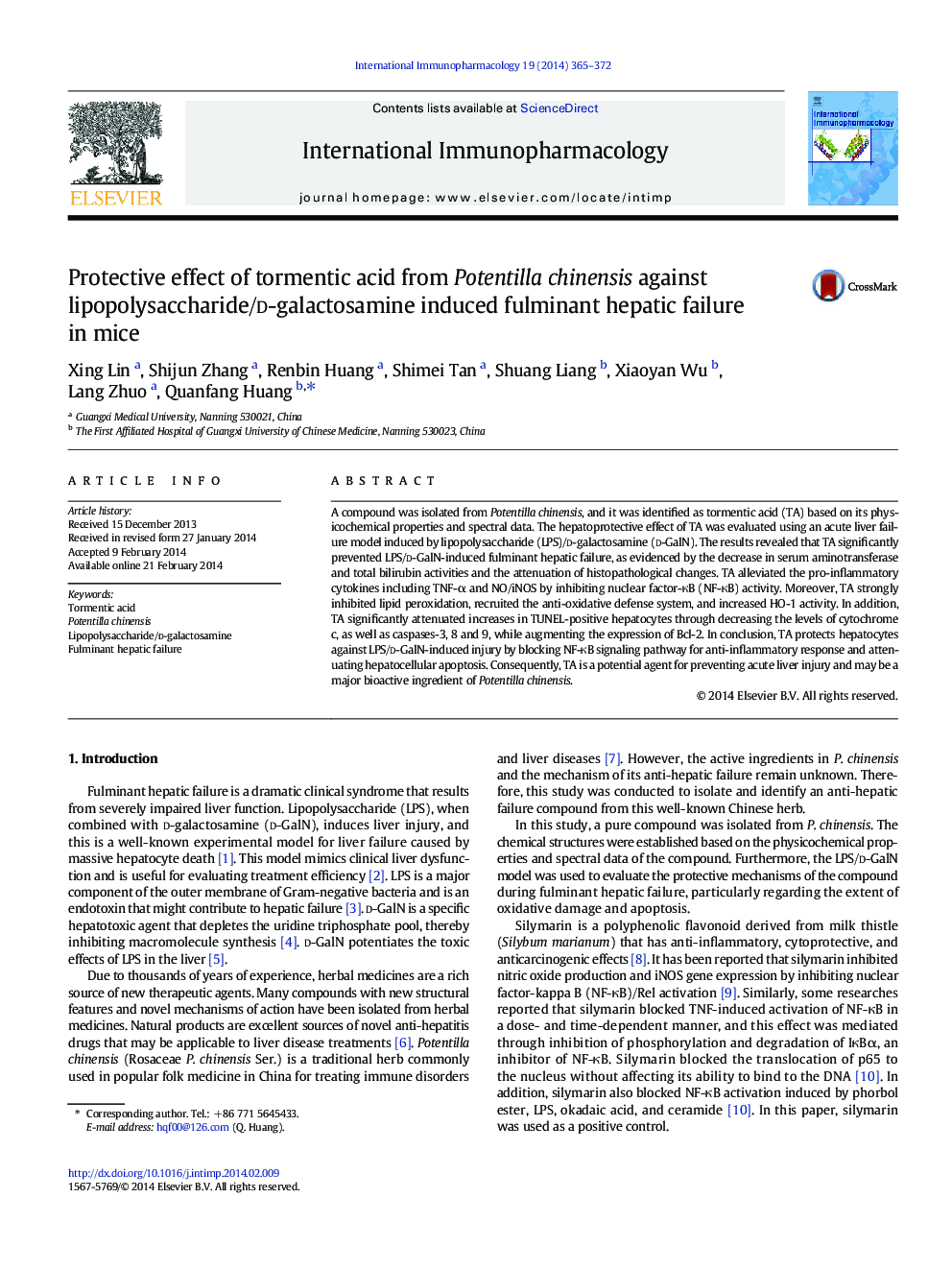| Article ID | Journal | Published Year | Pages | File Type |
|---|---|---|---|---|
| 2540851 | International Immunopharmacology | 2014 | 8 Pages |
•TA has a hepatoprotective effect on LPS/d-GalN-induced acute hepatic failure.•TA effectively suppresses inflammatory response.•TA markedly inhibits NF-κB activation.•TA significantly decreases apoptotic hepatocytes.
A compound was isolated from Potentilla chinensis, and it was identified as tormentic acid (TA) based on its physicochemical properties and spectral data. The hepatoprotective effect of TA was evaluated using an acute liver failure model induced by lipopolysaccharide (LPS)/d-galactosamine (d-GalN). The results revealed that TA significantly prevented LPS/d-GalN-induced fulminant hepatic failure, as evidenced by the decrease in serum aminotransferase and total bilirubin activities and the attenuation of histopathological changes. TA alleviated the pro-inflammatory cytokines including TNF-α and NO/iNOS by inhibiting nuclear factor-κB (NF-κB) activity. Moreover, TA strongly inhibited lipid peroxidation, recruited the anti-oxidative defense system, and increased HO-1 activity. In addition, TA significantly attenuated increases in TUNEL-positive hepatocytes through decreasing the levels of cytochrome c, as well as caspases-3, 8 and 9, while augmenting the expression of Bcl-2. In conclusion, TA protects hepatocytes against LPS/d-GalN-induced injury by blocking NF-κB signaling pathway for anti-inflammatory response and attenuating hepatocellular apoptosis. Consequently, TA is a potential agent for preventing acute liver injury and may be a major bioactive ingredient of Potentilla chinensis.
Graphical abstractFigure optionsDownload full-size imageDownload as PowerPoint slide
